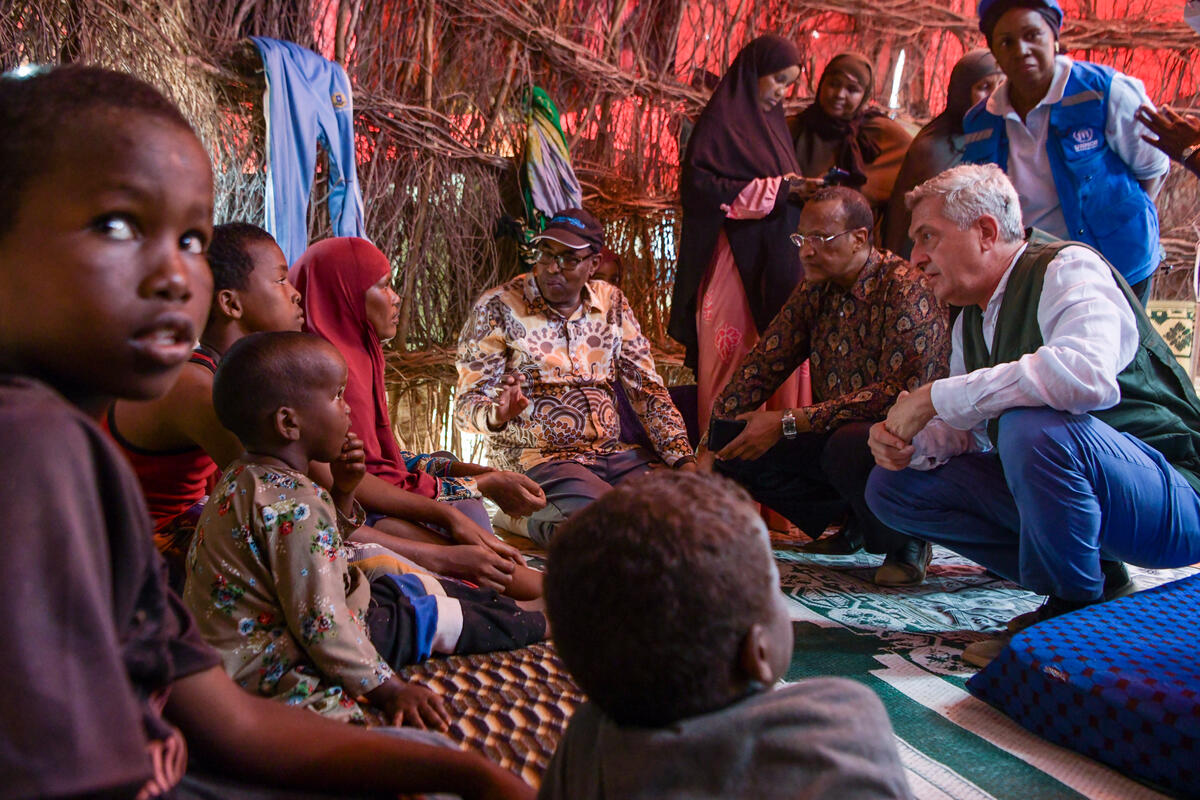Peace needed more than ever after five years of conflict in Yemen deepens suffering
Peace needed more than ever after five years of conflict in Yemen deepens suffering

In Yemen, protracted conflict has displaced thousands from their homes in recent weeks and prolonged displacement is exacerbating the hardship and risks faced by Yemeni families, warns UNHCR, the UN Refugee Agency today.
An intensification in fighting across Al Jawf, Marib and Sana’a governorates in northern Yemen since January displaced more than 40,000 people to Marib city and surrounding areas, east of the capital Sana’a, according to IOM data.
A number of those fleeing, including women and children, have told UNHCR that they had no choice but to escape on foot, walking for days without food or water across open desert.
The new arrivals are among 750,000 displaced people now being hosted in Marib governorate.
After years of protracted conflict, displaced communities and their hosts are struggling to survive.
As thousands continue to stream into Marib city and nearby areas in search of safety, humanitarian needs are fast accruing and basic services and assistance are overstretched.
Public services including hospitals and schools are struggling to cope with the growing population.
In Marib many displaced people live in overcrowded, makeshift sites with some families sharing just one tent between them. Others are sheltering in unfinished buildings.
People have trouble accessing clean water and proper sanitation. One family told UNHCR they share a latrine with 60 other families.
UNHCR is worried that displaced communities and their hosts will be at heightened risk in the event of a COVID-19 outbreak, given their precarious situation and dire living and sanitary conditions.
Despite tremendous efforts by humanitarian partners on the ground, owing to the magnitude of the crisis, food also remains a critical need for displaced families. Some mothers have said they are considering sending their children to work or to beg on the street in order to get by.
Many internally displaced people (IDPs) fled their homes without taking any belongings or identity documents - including their children’s birth certificates. Now, without legal documentation, many are unable to enroll their children in school, or access basic and essential services, including health care, while others are left vulnerable and at risk of forced eviction.
UNHCR is joining efforts with IOM, other UN sister agencies and humanitarian partners to provide crucial assistance to those displaced.
To date UNHCR has reached, through partners, more than 5,000 displaced families in Marib with household assistance, including tents, blankets, mattresses and cooking sets. More distributions are intended in the coming days.
UNHCR also plans to scale up protection assistance, including legal advice and counselling, and will help those without documentation. This is in addition to psycho-social support for those displaced and affected by the conflict.
While national plans for the COVID-19 response are being rolled out and will include displaced Yemenis and refugees, UNHCR and partners are supporting prevention and preparedness efforts.
UNHCR and its local partners are engaging refugee and IDP communities so they are aware of the risks and can better protect themselves. UNHCR is also distributing hygiene kits and increasing cash assistance so that refugees and displaced people can buy food and essential items to help with critical needs.
All these depend on the security situation and whether it provides for safe and unimpeded access by humanitarian partners to Yemenis in need.
Elsewhere in the country, UNHCR and partners are conducting rapid humanitarian assessments in Aden for IDPs affected by heavy rains and floods this week.
Preliminary reports indicate that almost 3,000 displaced Yemenis have been severely impacted, with some of their shelters and household possessions, including mattresses, food rations and personal belongings damaged. Two women and a three-month old baby also sustained injuries and have since been referred to hospital. UNHCR is working with partners to mobilize additional humanitarian support.
After five years of conflict, Yemen still remains the world’s largest humanitarian crisis with over 24 million in need of assistance and more than 3.6 million people uprooted from their homes.
UNHCR reiterates that only a peaceful resolution of the conflict can halt further suffering and stem humanitarian needs.
For more information on this topic, please contact:
- In Geneva, Shabia Mantoo, mantoo@unhcr.org, +41793377650









